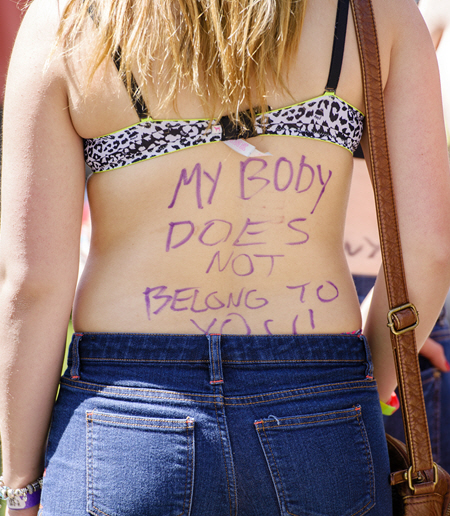 It Haunts You
It Haunts You
Even though you try not to think about what happened, you don’t feel like your relaxed and usual self. Part of you broke that day – or at least that’s how it feels. The worst part is that deep down – you blame yourself.
You don’t trust others, especially men. Always on edge, you’re now used to assuming everyone is a potential threat.
Any small thing can set you off, feeling like it’s all happening to you again. Being touched feels unsafe, and being intimate feels impossible.
On top of that, not everyone has treated you like a survivor. Maybe you tried to report what happened and felt like they blamed you. Sadly, this is a common response and can feel re-traumatizing. Family members sometimes say all the wrong things, too.
It’s Not Your Fault.
Maybe you did or didn’t report what happened, receive a hospital exam, reach out for help, or tell someone. Whatever your circumstance, I want YOU to know that it was NOT your fault, and you are not to blame. I believe you and support you.
Together in our sessions, you’ll learn to let go of that harsh self-blame and to place all the blame where it belongs – on the person who assaulted you. You’ll discover that your feelings are normal responses to trauma and that you don’t have to be afraid or ashamed.
The moment you feel heard, you begin to heal. I’m there to support you with a trauma-informed approach that will help you feel safe as you work through the terrible thing that happened to you.
 Liz Experienced Victim-Blaming
Liz Experienced Victim-Blaming
When Liz* started counseling, she was scared to share what happened. When she reported the assault, the police officers asked her why she had invited a guy she didn’t know over to her place.
“So, you invited a guy off of Tinder over… what did you think was going to happen?” they said. She felt humiliated and ashamed.
As she opened up with me, it was clear that the guy she had met on the dating app was not who she thought he was. She was scared and didn’t know what to do. Yes, she had invited him over, thinking they would hook up. But when she became scared of him and didn’t want to get intimate, he would not take no for an answer.
Liz said the police officers’ response, implying she was to blame, was almost as terrible as what had happened. Luckily, she found support in a friend who urged her to come to counseling.
Realizing Her Own Strength
Liz learned that she was not to blame for what happened to her. She learned that what she had experienced was victim-blaming. She let all the feelings out in our sessions.
Today, Liz feels strong. She comes to counseling for other things and doesn’t think about the assault as much. She cooks and plays with her cat again. At work, she can focus again.
Making Change as a Survivor
Liz wrote a letter to the officers, sharing how their negative responses had affected her. She didn’t want to see them again, but she wanted to give them a chance to change.
“If they understand, they can do better for the next survivor who reports,” she told me.
 Healing is a Journey.
Healing is a Journey.
Through my experience counseling hundreds of survivors of sexual assault, I’ve witnessed how resilient people are.
You get to heal, too. Your path will be uniquely yours. And you’ll have professional, compassionate support as you find your way to feeling like yourself again.
Remember that what happened is a part of your story, but it’s not the complete story.
Contact me today to schedule a free phone consultation!
*Client name changed to protect privacy.

